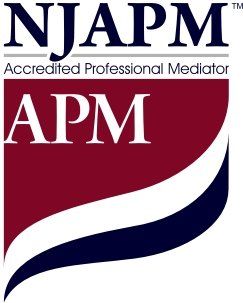Blog
Strich Law Firm PC Blog
Strich Law Firm PC Blog
By 7016255103
•
October 7, 2020
If you are about to go through a divorce, you may wonder who gets what? The answer is complicated. However, New Jersey does have laws on this idea of who gets what assets and liabilities of the marriage, which is referred to as Equitable Distribution. Generally, assets and liabilities accruing after the date of your marriage until the date a complaint for divorce is filed are subject to sharing. Assets and debts acquired before the marriage, or after the date of complaint for divorce, as well as inheritance kept in the receiver’s name, are usually excluded from sharing. The specifics depend on the type of asset or debt. Retirement monies (including but not limited to 4501Ks, 403Bs, 457 plans, deferred compensation plans, annuities, IRAs) saved during the marriage are usually equalized between the spouses. If you get laid off from your job, severance is likely to be shared because all income acquired during the marriage is considered joint. Gifts to each other are shared; this excludes wedding rings/engagement rings because it was for the promise of marriage which promise was met. Gifts from third parties are often excluded. If your house is in joint names, then it is shared: you can either sell it and split the monies from the sale (after expenses), or one spouse could buy the other out. There are many rules and it can be very difficult to work out all the details. If you are looking for someone who is very knowledgeable and has been practicing for over 40 years, contact Strich Law Firm P.C. We are here for you, and want to help you through these complicated and tough issues. For a consult in a matrimonial/family law case, visit our website www.strichlaw.com (a discounted initial consultation is available on the web site), email us at info@strichlaw.com, or call us at (609) 924-2900. Disclaimer: Any and all information contained on this site is for informational purposes, and should not be utilized as a substitute for a full, in-person consultation with a lawyer in your State and familiar with your circumstances. Strich Law Firm PC is in NJ and the comments relate to NJ only. Strich Law Firm, P.C. assumes no responsibility for any information contained on this site, and disclaims all liability in respect of such information. In addition, no part of this site shall be deemed to form any contract between Strich Law Firm, P.C. and anyone viewing this site.
By 7016255103
•
October 7, 2020
If you are getting a divorce, one of the first questions that people have is about alimony. A lot of people don’t realize is that there are four types of alimony. The first one is open-durational, which makes it clearer that alimony is for a period of time and can end. There are some requirements involving this type of alimony, including that you have to be married for 20 years or more. The second is limited durational, which is for marriages lasting less than 20 years. The general rule in the law is that you won’t pay alimony for longer than the length of your marriage. Next is rehabilitative alimony, where if you need a course or need to finish out college to get a better career and pay, the payor spouse will have to pay separate monies towards this expense. As a consequence, the payor spouse will pay less alimony later on. Lastly, there is reimbursement alimony, which is when you pay the couples’ living expenses while the other spouse gets additional education. There are many factors involving salary and education as well as how long ago the supporting spouse made these payments. If the other spouse ends up making a better salary, the supporting spouse can be reimbursed at some level for incurring the living expenses. Of course, there are exceptions to any case which a judge can decide upon. There are thirteen factors which usually go into deciding alimony; including length of marriage, age, health of spouses and much more. This process is very complex, so if you need someone who has a grasp of the law involving alimony, with over 40 years of experience, contact Strich Law P.C. Visit our website www.strichlaw.com, email us at info@strichlaw.com, or call us at (609) 924-2900. Disclaimer: Any and all information contained on this site is for informational purposes, and should not be utilized as a substitute for a full, in-person consultation with a lawyer in your State and familiar with your circumstances. Strich Law Firm PC is in NJ and the comments relate to NJ only. Strich Law Firm, P.C. assumes no responsibility for any information contained on this site, and disclaims all liability in respect of such information. In addition, no part of this site shall be deemed to form any contract between Strich Law Firm, P.C. and anyone viewing this site.
By 7016255103
•
August 27, 2020
When two parents split up, many times kids get caught up in the middle. Although you and your ex-spouse may not be partners in life, you should be partners in parenting. Often when it comes to co-parenting, you will be unable to control your child’s every move or ensure that they are living by your rules. But, you should work with your ex to steer clear of certain challenges while co-parenting. 1. Inconsistent schedule: Your children already have to deal with changing their household often, so it is recommended that their schedule be maintained consistently. For example, Wednesdays are always with Dad. 2. Conflicting Rules: What if at one parent’s house, a child can go out whenever they want, but with the other parent, they need to be home before sunset? This is confusing and creates a competitive environment for the child’s affections. The best way for everyone to be on the same page is by discussing and agreeing with your co-parent some ground rules. To the extent that you are unable to have agreement, the child needs to understand that Dad’s house has Dad’s rules and Mom’s house has Mom’s rules. In real life, the child will have to adapt to different rules with each teacher and each boss. 3. Negative about your child’s other parent: Your child is NOT your therapist. Do NOT talk about your ex in a negative manner. The child loves both of you and does not want that love to be compromised. This can harm your child’s relationship with both you and your ex-spouse. Your child may have less trust in you if and when something important happens in their life. 4. Uncooperative co-parents: For a successful co-parenting relationship, you must be willing to cooperate and compromise. If you argue in front of your child, this can create a hostile environment. This can create many problems for your child, in terms of self-esteem and trust. Your child will see that you and your co-parent are arguing over them, which may lead them to believe it is their fault. SO set your problems aside, and do what is best for your child. If you cannot agree on what is best, use a family mediator, parenting coordinator or family therapist. 5. Neglecting the child: When parents split, many times they seek to start a “new family”. This can cause a rift between the child and the parent. Ensure your child that no matter what, both Mom and Dad will be there for them and constantly reassure them that you love them. Explain to the child that a parent’s heart can expand to love more children, without losing any love for each of them. Try to keep giving your child the same amount of attention as you did before. 6. Using your child as a communicator: By doing this, you are putting your child in the middle. This is one of the most harmful things you can do as a parent. It is best that you communicate directly with the other parent to keep the child out of it; if you can’t communicate by telephone, email or text, there are programs, such as Our Family Wizard, that can assist with safe communication. By doing so, you can avoid any anger being taken out on your child while protecting your relationship with your child. For help in family law matters, contact Strich Law Firm, P.C. Call us at 609-924-2900 or visit our website at www.strichlaw.com. Disclaimer: Any and all information contained on this site is for informational purposes, and should not be utilized as a substitute for a full, in-person consultation with a lawyer in your State and familiar with your circumstances. Strich Law Firm PC is in NJ and the comments relate to NJ only. Strich Law Firm, P.C. assumes no responsibility for any information contained on this site, and disclaims all liability in respect of such information. In addition, no part of this site shall be deemed to form any contract between Strich Law Firm, P.C. and anyone viewing this site
By 7016255103
•
August 25, 2020
What is a Power of Attorney and why (“POA”) is a legal document giving one person (the agent or attorney-in-fact) the power to act for another person (the principal). The POA can give very limited powers or very broad powers, as needed. A POA may give the attorney-in-fact the ability to make decisions on healthcare, legal, property and finances. You must be mentally capable or competent when signing this document. An attorney-in-fact has fiduciary responsibilities, which means they are held to a higher standard and must do the best thing for the principle; if not, they could be punished by law. Also, attorneys-in-fact don’t need to spend any of their own money when acting for the principal; they will be reimbursed from the principal’s monies. Let’s say hypothetically, you get in a car accident, are injured, and you are unable to make decisions for yourself. If appointed as an attorney-in-fact, another person you trust will make decisions on your behalf. Even if you are able to make your own decisions, an attorney-in-fact can assist with the logistics, such as paying a bill or going to the bank for you. You will have peace of mind once you have completed a POA; a durable POA is in effect immediately once signed. Contact Strich Law Firm, PC to make an appointment for your POA and sleep well once you have completed it. Contact Strich Law Firm P.C. at 609-924-2900 or by email info@strichlaw.com to take this important step to protect you and your family. You may also visit our web site at www.strichlaw.com. Disclaimer: Any and all information contained on this site is for informational purposes, and should not be utilized as a substitute for a full, in-person consultation with a lawyer in your State and familiar with your circumstances. Strich Law Firm PC is in NJ and the comments relate to NJ only. Strich Law Firm, P.C. assumes no responsibility for any information contained on this site, and disclaims all liability in respect of such information. In addition, no part of this site shall be deemed to form any contract between Strich Law Firm, P.C. and anyone viewing this site.

By 7016255103
•
August 20, 2020
Your age has an impact on both: your eligibility for retirement and the benefits that you receive. So, what does each age signify in terms of retirement? Under 50: If you begin to save for retirement early on, you will be able to have an advantage for returns in terms of compounding investments. You will also be able to qualify for tax breaks and employer contributions. In your 401k contribution, you can deposit up to 19,500 dollars and also, up to 6,000 dollars in a Roth retirement account. A Roth IRA, is an individual retirement account that offers tax-free growth and tax-free withdrawals in retirement At age 50: At 50, you can begin increasing your retirement contributions. You can make an extra deposit of 1,000 dollars in an IRA, or for a total deposit of up to $7,000. You can make a 401k contribution of up to $26,000 in 2020, with a catch-up contribution of $6,500. By making catch up contributions, you put additional money into your retirement years and can qualify for a larger tax break in your years leading up to retirement. At age 55: If hypothetically you decide to leave your job at this age or older, you will be able to take 401k withdrawals from your most recent job penalty-free. This allows you to avoid the 10% early withdrawal penalty. At age 59 ½: The 10% early withdrawal penalty on your IRA account ends. At age 62 : You can begin collecting your Social Security payments. But your payments will be reduced if you begin receiving them at this age. Nevertheless, if you work after signing for Social Security, and are paid more than the actual earnings limit, your benefit check may be momentarily withheld. For every two dollars, you earn above this limit, your Social Security benefit will decrease by one dollar. At age 65: Medicare eligibility begins. You should take advantage of when you can first enroll in Medicare because your premiums will increase by 10%, every year-long period that you were eligible for benefits but did not enroll. At age 66: For people born from 1943 to 1959, you qualify for your full social security benefit. Once you reach this age, you will be able to work while receiving Social Security benefits with no payments being withheld. At age 67: People born from 1960 and later, reach their social security full retirement age. At age 70: If you withhold claiming your benefits from the age of reaching retirement and 70, then your monthly payments with an increase of 8%. At age 72: Once you reach 72, you are required to take withdraws from your 401k and traditional IRA. Your first distribution must be taken out by April 1 of that year, with annual withdrawals being due by December 31 every year. If you miss a required minimum distribution it is a 50% penalty. For help in retirement planning or cases related to elder law contact Strich Law Firm, P.C. Call us at 609-924-2900 or visit our website at www.strichlaw.com. Disclaimer: Any and all information contained on this site is for informational purposes, and should not be utilized as a substitute for a full, in-person consultation with a lawyer in your State and familiar with your circumstances. Strich Law Firm PC is in NJ and the comments relate to NJ only. Strich Law Firm, P.C. assumes no responsibility for any information contained on this site, and disclaims all liability in respect of such information. In addition, no part of this site shall be deemed to form any contract between Strich Law Firm, P.C. and anyone viewing this site.

By Hibu Websites
•
August 13, 2020
There is a common phrase that is often said: In life you can only be certain of two things, taxes and death. Now for the latter, an important way to prepare is through making a Will a/k/a “a Last Will and Testament”. By making a Will, you protect not only your own wishes but you help protect everything: from you family to your pets to your estate. In your Will, you can name an executor to carry out your wishes once you pass. A friend or family member who is trusted is commonly selected as an executor. Furthermore, if your children are minors, you should choose who gets custody of them after you pass (referred to a Guardianship), and even someone to help oversee the estate that you leave for your children; the money is usually put into a Trust created on your death and the Trustee is responsible for managing the money and making payments. If you do not have a Will, then your assets will go to people specified in NJ statutes. This may not be who you want! For example, if you are married without children a nd you die without a Will, your parents and siblings have rights in addition to your spouse. If you have no family members at all and no Will, then your property will likely go to the state! Let’s say hypothetically that you would rather your money goes to a charity rather then some distant relatives you have never met before, this can be accomplished by creating a Will. A Will is the best way to ensure that the payout of your assets is reflective of your wishes. Keep in mind this also includes where and how you want to be buried as well. After drafting your Will, you must have two witnesses sign your Will. Your Will doesn’t have to be notarized, but it will help make your Will “self-proving”. This means your witnesses don’t have to go to Court. Now, as life goes on, many things change, both personally and legally. Can you change your Will? Yes, you can physically destroy your Will. Alternatively, you can create a new Will stating that it rescinds the previous Will or you can do a Codicil to modify limited terms. When it comes to Wills, it is strongly suggested that you meet with an attorney to ensure that your wishes are fulfilled. There is a reason that an attorney went to law school, has attended training courses after graduation and developed experience. Do NOT just do a Will using a form online. Your loved ones will be sorry that you did so! For example, if you don’t know what “per stirpes” or “per capita” mean, it is almost impossible to address a key issue in your Will. You should “check in” with your estate attorney every three to five years to address changes in your personal situation and the laws. Contact Strich Law Firm, P.C. to create or modify a Will that is best reflective of your wishes. Call us at 609-924-2900 if you need your estate plan checked or created. You can also visit our web site at www.strichlaw.com. Disclaimer: Any and all information contained on this site is for informational purposes, and should not be utilized as a substitute for a full, in-person consultation with a lawyer in your State and familiar with your circumstances. Strich Law Firm PC is in NJ and the comments relate to NJ only. Strich Law Firm, P.C. assumes no responsibility for any information contained on this site, and disclaims all liability in respect of such information. In addition, no part of this site shall be deemed to form any contract between Strich Law Firm, P.C. and anyone viewing this site.

By 7016255103
•
August 6, 2020
In today’s age, many parents have children without being married and this is becoming more acceptable in our society. But what happens if the parents decide they need to split up? What is the custody process for unwed parents? Well overall, New Jersey law treats the mother and father equally. But there is one hurdle that married fathers do not have to face; the unwed father must be able to prove paternity. Now there are two ways in which unwed fathers can prove paternity. First, both parents have to sign a Certificate of Parentage a/k/a “COP;” by signing this document, both the mother and father are recognizing that they are the child’s biological parents. However, if one parent refuses to sign this certificate, then the other parent may file in court to establish paternity. The COP is the most budget-friendly and simplest way to establish paternity. If a parent declares that the child isn’t theirs, then they will have to get a genetic test that can be ordered by the court or agreed upon by the parties. So let’s say that paternity is established, what now? The mother and the father both have equal rights in terms of custody. The parents may need to pay child support to the other parent as well because unmarried parents do still have a legal responsibility to support them. Custody is similar to proceedings for divorce, which always looks for the best interest of the child. What is the actual process of getting parental rights for an unmarried couple? First, one parent has to file a complaint with the court, which opens up a non-dissolution case. A non-dissolution case is classified as a FD matter and helps establish paternity, custody, parenting time (visitation), child support (which includes medical coverage, extraordinary activity expense and college). The process then takes you to a consent conference (unlike mediation for a divorce, a consent conference is non-confidential) or mediation in the hope that both parties come to an agreement. If not, both parties will appear before a judge, including possibly a full plenary trial. At Strich Law Firm, we help protect un-married mothers and fathers in their cases. Call us at 609-924-2900 if you have a possible case or visit our web site at www.strichlaw.com. Disclaimer: Any and all information contained on this site is for informational purposes, and should not be utilized as a substitute for a full, in-person consultation with a lawyer in your State and familiar with your circumstances. Strich Law Firm PC is in NJ and the comments relate to NJ only. Strich Law Firm, P.C. assumes no responsibility for any information contained on this site, and disclaims all liability in respect of such information. In addition, no part of this site shall be deemed to form any contract between Strich Law Firm, P.C. and anyone viewing this site.

By Hibu Websites
•
July 16, 2020
Many clients often ask how long their divorce will take. Our response is that it usually depends on a variety of factors, including but not limited to the complexity of the parties’ financial and other situations, the expectations of the parties’, the dynamic between the parties’ attorneys, and whether the divorce is particularly bitter. The narrative below describes the general framework for a contested divorce case proceeding through the Court in an ordinary fashion. However, please note that if the parties’ execute a Marital Settlement Agreement addressing all outstanding issues at any time after the first step, they may bypass the other steps and receive a judgment of divorce at an uncontested hearing. Summons & Complaint – The first step in a divorce proceeding is the filing of a Summons and Complaint. The Complaint may allege a fault-based ground for divorce (extreme cruelty, adultery, etc.), or may allege irreconcilable differences. Given that the results of a divorce are usually no different if marital fault is alleged, most clients choose to simply file under the irreconcilable differences statute. The Complaint will also assert a jurisdictional basis for the Court to grant the divorce, and will specify the relief requested. Once the Summons & Complaint are filed, the other party is served with a copy. Answer & Counterclaim - The spouse served then has 35 days to file an Answer to the Complaint. Usually, a Counterclaim is filed with the Answer in which the Defendant spouse also requests a divorce, along with certain relief. Case Management Conference – After the initial pleadings have been filed, the parties’ usually thereafter receive a notice scheduling a Case Management Conference before their assigned Judge. The purpose of the Conference is to identify the outstanding issues, and set a deadline for the exchange of information (discovery) and appraisals. If, however, the parties’ attorneys’ are able to mutually agree on these deadlines prior to the Conference, and memorialize their Agreement in an order, the attorneys need not actually appear in Court for a conference. Parents’ Education Course – Where custody or parenting time is an issue, the parties’ are summoned to attend a Parents’ Education Course at the Courthouse. The cost for this is included in the fees at the time the initial pleadings are filed. We have received good feedback from our clients concerning the course. Case Information Statements (CIS)– The usual next step is to file a Case Information Statement. This is a complex document in which each spouse discloses their present income information, along with an itemized budget and a list of all of their assets and liabilities. The document is certified, meaning that the CIS will have the same weight as if the questions therein were being answered under oath. Discovery (Interrogatories, Notice to Produce & Depositions) – Next, the parties will propound discovery upon one another. Discovery consists of a series of questions (Interrogatories) and requests for documents (Notice to Produce). The parties’ must respond to one another’s requests by issuing written answers to the Interrogatories, and furnishing all documents requested in the Notice to Produce. Sometimes, in complex cases, a party may be deposed. In a deposition, the other spouse’s lawyer will ask the party being deposed a series of verbal questions. The entire proceeding is transcribed by a Court reporter. As with the CIS, a party’s discovery responses are certified, and may later be introduced in Court for a variety of purposes if the matter proceeds to trial. Discovery, especially depositions, is very expensive. Expert Evaluations - If necessary, the parties’ may proceed to obtain formal expert reports. These reports may be used at the time of trial in support of a party’s position on a given issue. An expert may be joint (both parties’ intend to rely on it), or independent (one party intends to rely on it as against the other party). If the parties’ own a home, they will likely need to order a formal appraisal to determine its worth. Other types of experts may be retained if needed, i.e., a custody expert, a business appraiser, or an employ-ability expert. Early Settlement Panel (ESP)/Intensive Settlement Panel (ISP) - The Early Settlement Panel program is a process whereby the clients appear with their counsel at the Courthouse. The attorneys present their clients’ cases to two panelists, comprised of local lawyers who are very experienced in family law. The panelists will then advise the clients of how they feel the financial issues in the case should be decided. If the clients agree, they can obtain a divorce before the Judge that same day. If the parties don’t have a draft Marital Settlement Agreement with all of the terms done, it is recommended that the divorce not be placed on the record until there is a signed agreement. Statements outlining each party’s position are submitted to the panelists prior to the ESP. The ISP is a similar proceeding employed in certain counties. It is similar to ESP, but much more intense and thorough than an ordinary ESP. Economic Mediation – If the parties’ do not obtain a divorce at the ESP, they are referred to Economic Mediation to resolve the outstanding issues. The attorneys choose a Mediator from the Court’s list of assigned Mediators. Thereafter, the parties’ will engage in one or more mediation sessions with the Mediator. Usually, a lot of progress is made at this stage; however, the parties’ must pay the Mediator his or her hourly rate after an initial free hour, as well as their own attorney Custody & Parenting Time Mediation – If custody and/or parenting time is at issue, the parties’ will be required to go to custody & parenting time mediation at the Court, almost always without their attorneys. We see a very high success rate with this program, which is free of charge to the clients. If the parties’ agree on all issues, the Mediator will usually draw up a Memorandum of Understanding, which may be incorporated into an Agreement addressing the remaining financial and other issues. Trial/Uncontested Hearing – If any aspect of the case remains unresolved after the ESP, economic mediation, and parenting mediation, a trial date will be set. However, in certain counties, cases are often settled at the Courthouse on the trial date, following continued negotiations in a conference room. In other counties, when a trial date is scheduled, you will be issuing opening arguments that day. An actual trial may take several months to complete, as the trial may not be conducted on consecutive days. Alternatively, if the parties’ have reached an agreement before the trial date, they can schedule an uncontested hearing. At this time, the Judge will enter a final judgment of divorce, after satisfying herself that the parties’ have entered into an Agreement knowingly and voluntarily. Call us with more questions at 609-924-2900 or visit our web site at www.strichlaw.com. Disclaimer: Any and all information contained on this site is for informational purposes, and should not be utilized as a substitute for a full, in-person consultation with a lawyer in your State and familiar with your circumstances. Strich Law Firm, P.C. assumes no responsibility for any information contained on this site, and disclaims all liability in respect of such information. In addition, no part of this site shall be deemed to form any contract between Strich Law Firm, P.C. , and anyone viewing this site.

By 7016255103
•
July 9, 2020
Ask yourself, why one parent may believe the other is a terrible and unfit parent. Meanwhile, the other might believe the other is horrible and unfit. So, is one of them lying? Are they both lying? Well this isn’t necessarily the case; it all depends on perception and bias. You must be asking yourself what are perception and bias? Perception is a way of regarding, understanding or interpreting something. Bias is an opinion which may based on perception and affects one’s judgment. Everyone has their own perception and bias, including lawmakers, judges, clients and attorneys. Often when there is fewer facts and more speculation, bias is more likely to come into play. When it comes to family law attorneys, bias can go either way, so that the attorney does or does not believe their client. Bias may make it impossible to see the other point of view. Attorneys must learn to acknowledge their own bias and to separate their bias from the case itself. Acknowledging bias can allow for attorneys to look at the facts of the case and provide the best route for clients. Despite supposing to be impartial, mediators and judges sometimes find themselves impacted by their own bias. In this case, the judge/mediator should recuse him/herself or be recused by an outside party. Bias exists; it’s a matter of being educated and understanding one’s own bias. In conclusion, the best way to “fight” against bias is to be mindful of the amount of perception involved versus objectivity. The lawyers at Strich Law Firm PC are mindful of perception and bias and will focus on what is best for you. For a consultation at Strich Law Firm, call us at (609) 924-2900 or email us at info@strichlaw.com Disclaimer: Any and all information contained on this site is for informational purposes, and should not be utilized as a substitute for a full, in-person consultation with a lawyer in your State and familiar with your circumstances. Strich Law Firm PC is in NJ and the comments relate to NJ only. Strich Law Firm, P.C. assumes no responsibility for any information contained on this site, and disclaims all liability in respect of such information. In addition, no part of this site shall be deemed to form any contract between Strich Law Firm, P.C. and anyone viewing this site.

By Gabrielle L. Strich, Esq.
•
July 7, 2020
When getting a divorce… Consider the impact the divorce will have on your children. You and your partner can agree to try to minimize the impact on the children, through the following methods: 1. Never discuss divorce issues around them; 2. Do not put your children in the middle of the dispute or use them as a means of communication (i.e. tell your mother/father that...); 3. Coordinate telling the children about the impending divorce in a peaceful manner so that they hear from both of you to be free from any negative references to the other spouse; 4. Assure your children that they have not done anything wrong/it isn’t their fault. Emphasis that you both love them ; it is just the parents who are not comfortable living together anymore. All of you are still going to be a family, it will just be in a different shape, like from a round circle to an oval circle; 5. The children will have their own rooms at both parents’ house. They will be able to decorate their new room in any way that they want; 6. They will get to see both their Mom and Dad; 7. There will be an opportunity for new friends at their new house; 8. As needed and as affordable, they will get new stuff, possibly a cell phone or computer, so that they have as much stuff as possible at both houses; 9. Whenever they have a question, they can ask either Mom or Dad anytime; 10. They will not be asked to keep secrets from Mom or Dad. 11. Tell them to open up about their feelings, and if they feel hurt or upset let them express those feeling. Keep reassuring them that both Mom and Dad love them. 12. Account for the fact that sometimes Mom and Dad may not be together for certain holidays. But, mention that they will get double the presents, if affordable, also they can get two days of the same holiday. (i.e. one parent can have a mock Christmas on Christmas Eve while having it with the other parent on Christmas day). 13. Maintain a similar routine/schedule for your children for a sense of normalcy ; 14. Most importantly, listen to them. There is a lot for the children to take in, especially younger children, so the initial talk should take into account how the children are reacting. You should respond accordingly. You should not stay together just for the children. Children are extremely sensitive to their parents and their surrounding atmosphere. So, if an atmosphere is so tense that you could “cut it with a knife” this is worse for children’s development than separation and peaceful homes. Our firm can do mediation, collaborative law or traditional representation, but only one of these or else it would be a conflict of law. If you are thinking about divorce, call us for a consultation at 609-924-2900 or email us at info@strichlaw.com. Disclaimer: Any and all information contained on this site is for informational purposes, and should not be utilized as a substitute for a full, in-person consultation with a lawyer in your State and familiar with your circumstances. Strich Law Firm PC is in NJ and the comments relate to NJ only. Strich Law Firm, P.C. assumes no responsibility for any information contained on this site, and disclaims all liability in respect of such information. In addition, no part of this site shall be deemed to form any contract between Strich Law Firm, P.C. and anyone viewing this site.
Our Facebook Feed
Quick Links
Contact Us
Strich Law Firm PC
977 State Route 33 West, Suite 101
Monroe Township, NJ 08831
Tel:
609-924-2900
Monroe Township, NJ 08831
Privacy Policy
| Do Not Share My Information
| Conditions of Use
| Notice and Take Down Policy
| Website Accessibility Policy
© 2025
The content on this website is owned by us and our licensors. Do not copy any content (including images) without our consent.




